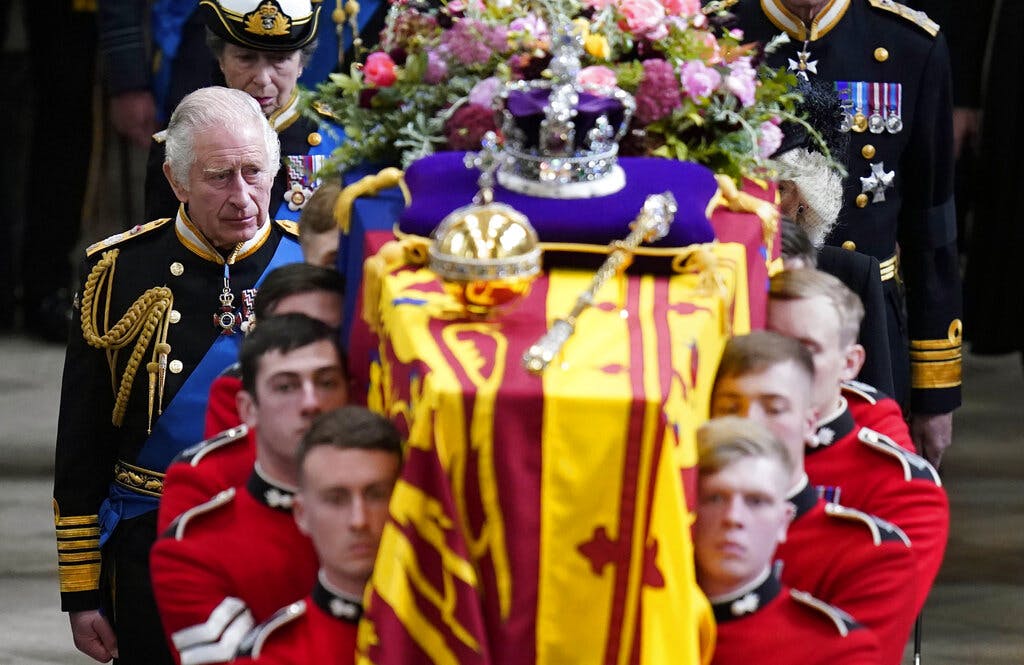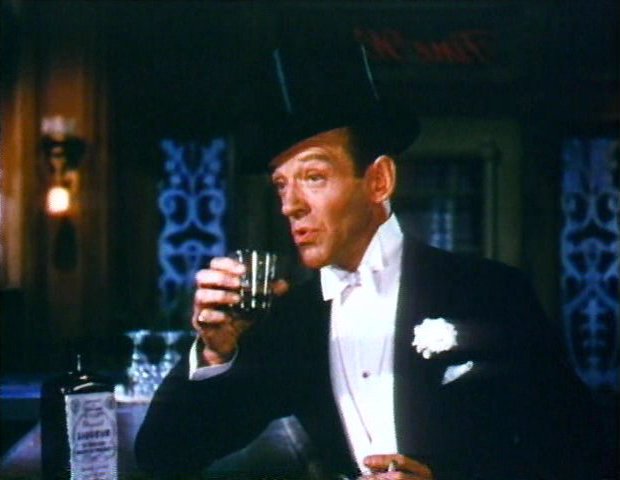Watching a Royal Funeral and ‘Royal Wedding’
It’s normal to feel melancholy while observing a funeral, even one for a public figure that is witnessed through the prism of TV, but my response surprised me nonetheless.

On Monday, in the climactic event of close to two weeks of pageantry, mourning, and reflection, Queen Elizabeth II was laid to rest on Monday. As I watched the solemnities on television — the slow, stately trek to Windsor Castle from Westminster Abbey; the orb, scepter, and crown unfastened from the queen’s coffin; the somber faces of the new king and his family — I felt a pang of real sadness of the sort that I hadn’t been prepared for.
Now, it’s normal to feel melancholy while observing a funeral, even one for a public figure that is witnessed through the prism of TV, but my response surprised me nonetheless.
After all, I’m an American born in Ohio — a place that, while boasting an appealing rural character in between the big cities, is admittedly quite remote from what William Blake called England’s “green and pleasant land” — with only an intermittent interest in the royal family.
I was never an admirer of Princess Diana, and my esteem for Prince Charles rested on his impeccable wardrobe and for Prince Philip on his equally impeccable political incorrectness. As for Queen Elizabeth? Well, she was just a fixture — an admirable one — in the background.
Until the past two weeks, the most tangible pro-royal family act of my life was surely my post-adolescent flirtation with the Episcopal Church, the woke, theologically threadbare American subsidiary of the Church of England — that’s the faith the British sovereign is tasked with defending in the capacity of “Defender of the Faith.”
I won’t deny that my failed Episcopalianism was rooted, in part, in the pleasure I took in being associated with a church whose heritage could be traced to the British throne, something sure to annoy my left-liberal acquaintances.
Yet the majestic drama of the last two weeks gripped me for reasons other than contrarianism. Of course, the news itself was compelling — the death of a world leader whose term overlapped with that of Winston Churchill is a big deal — but the spectacle swept me up.
That all of the United Kingdom seemed to intuitively understand this was a time both to mourn Elizabeth II and to celebrate Charles III seemed indicative of a society more mature than our own, and the ceremonies themselves — not least the funeral marches that accompanied the coffin wherever it was taken — were redolent of something grand, mysterious, important.
The proceedings not only succeeded in honoring the queen but in inviting those who look on to reflect on their own mortality: If the queen can die, so can we, and if her death is treated as a momentous occasion, perhaps ours will be, too — for those who care about us, at least.
Maybe the function of monarchy is to take the essential things of life — births, marriages, deaths — and blow them up to huge, fantastically elaborate proportions.
Through Charles and Diana’s wedding we gained a sense of matrimony’s promise (unfulfilled in their unhappy case); through Prince George’s arrival, we acquired a sense of the way a family replenishes itself over generations; and now, through the queen’s death, we have been reminded of life’s transience as well as the grief our own inevitable departure will inspire those in our own personal “queue.”
As I thought about all of this, I remembered one of my favorite films, Stanley Donen’s “Royal Wedding.” This 1951 Metro-Goldwyn-Mayer masterpiece stars Fred Astaire and Jane Powell as sibling dance stars tapped for an engagement to perform in London at the time of the looming wedding of then Princess Elizabeth.

The story is largely a clothesline on which to hang brilliant musical numbers — this is the movie in which Astaire manages to ascend the side of a wall and then dance on the ceiling — but Donen captures the authentic excitement of Americans encountering actual royalty.
“England during the wedding,” Powell exclaims when informed of the booking across the pond. (Donen, who died in 2019, was himself a South Carolinian who was particularly at home making movies set in England, including the equally brilliant romantic comedies “Indiscreet” and “The Grass Is Greener.”)
More than that, “Royal Wedding” shows how the tiny, romantic lives of its characters are conferred gravity and dignity thanks to their proximity to the real royal wedding.
On the day of Philip and Elizabeth’s wedding — the celebration surrounding which is glimpsed in real footage intercut with scenes shot for the movie — the cast’s various affairs are sorted out.
Amid all the joyous commotion, Astaire resolves to propose to Sarah Churchill (Winston’s daughter), and Powell to Peter Lawford. It’s as though each was inspired, finally, to settle on a partner through the example of the princess and her groom.
When the newly hitched couples depart the church, Astaire, surveying the crowd that had assembled for the royal newlyweds, impishly comments: “They didn’t have to go to all this trouble — a small wedding would have been all right.”
Like the queen’s funeral, the movie “Royal Wedding” reminds us that monarchy ennobles not only those whom it seeks to honor but the rest of us who pick up some of its stardust.
Mr. Tonguette writes about the arts for many publications, including the Wall Street Journal, the Washington Examiner, and National Review.

